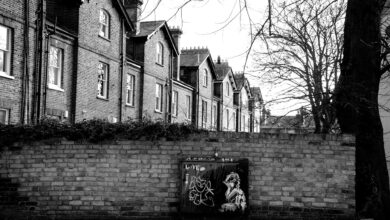Investing in Rural vs. Urban Properties: What’s the Better Choice?

Choosing between investing in rural or urban properties is a significant decision for any buyer’s agent or investor. This choice impacts not only the potential return on investment but also the lifestyle and opportunities associated with the property. Rural properties often offer peace, privacy, and a closer connection to nature, whereas urban properties provide convenience, access to amenities, and strong rental demand. Understanding the benefits and challenges of each can help investors make an informed decision tailored to their goals and preferences, a key area where a property investment strategist can offer invaluable insights.
Investing In Rural Properties
Investing in rural properties presents unique opportunities and challenges. These investments often come with larger land sizes, potential for agricultural use, and a more tranquil lifestyle. However, investors should consider factors such as market demand, infrastructure, and access to services. Here, we explore key aspects of rural property investment.
[tie_list type=”starlist”]
- Space and Privacy: Rural properties often come with vast expanses of land, offering privacy and space that’s hard to find in urban settings. This abundance of land can be used for various purposes, including farming, leisure, and even renewable energy projects, making it a versatile investment.
- Affordability: Generally, rural properties come with a lower price tag compared to their urban counterparts. This affordability allows investors to purchase larger properties or land at a fraction of the cost, providing a solid foundation for long-term investment strategies.
- Potential for Appreciation: While rural areas may see slower growth rates, strategic investments in regions poised for development or increased tourism can lead to significant appreciation. As urban sprawl continues, rural areas on the outskirts of cities may become more desirable, increasing their value over time.
- Sustainable and Eco-friendly Opportunities: The trend towards sustainability and eco-living has made rural properties more attractive. Investors have the chance to develop eco-friendly housing, organic farms, or conservation projects, tapping into the growing market for green and sustainable living.
- Lifestyle Change and Rental Potential: For buyers seeking a lifestyle change, rural properties offer an escape from the hustle and bustle of city life. Additionally, these properties can be marketed as holiday rentals or retreats, catering to city dwellers looking for temporary escapes, thus generating rental income.
[/tie_list]
Investing in Urban Properties
Urban property investment is often characterized by its high demand and potential for steady rental income. These properties are typically located near essential amenities and employment opportunities, making them attractive to a broad range of tenants.
[tie_list type=”checklist”]
- High Rental Demand: Urban properties are in the heart of economic activities, ensuring a consistent demand for rental units. Proximity to workplaces, universities, and amenities makes urban properties an attractive option for professionals, students, and families.
- Appreciation Potential: Properties in urban areas typically appreciate at a faster rate due to the continuous demand for housing in city centers. This appreciation is driven by limited supply and ongoing urban development, making urban properties a lucrative investment.
- Diverse Tenant Pool: The urban setting offers a diverse pool of potential tenants, including young professionals, families, and students. This diversity allows for a more stable rental income and reduces the risk of vacancy.
- Convenience and Lifestyle: Urban properties offer tenants the convenience of living close to work, entertainment, and shopping centers. This lifestyle appeal can command higher rent prices and attract tenants willing to pay a premium for convenience.
- Investment Flexibility: Urban investments offer flexibility in terms of property type, including apartments, townhouses, and commercial spaces. This variety allows investors to diversify their portfolio within the urban property market, a strategy often employed by savvy property investment strategists and buyer’s agents.
[/tie_list]
Factors to Consider When Choosing Between Rural and Urban Properties
When deciding between rural and urban property investments, several factors must be considered to align with your investment goals, budget, and lifestyle preferences.
[tie_list type=”checklist”]
- Investment Goals and Strategy: Define your long-term investment goals. Rural properties may be suited for those looking for land appreciation or lifestyle changes, while urban properties may appeal to investors focusing on rental income and quick appreciation.
- Market Demand and Growth Potential: Analyze the market demand in both rural and urban areas. Urban areas typically have higher rental demand, but rural areas may offer growth potential if they are near expanding urban centers or tourist attractions.
- Budget and Affordability: Your budget will significantly influence your choice. Rural properties may offer more land and privacy for your investment, while urban properties, though potentially more expensive, offer quicker returns on investment through rental income. You may also find an easy way on how to buy a rental property with no money in the rural area.
- Risk Tolerance and Management: Consider your risk tolerance. Urban properties may offer more stability in terms of rental demand, while rural properties might carry more risk due to their dependence on local economic growth and development.
- Lifestyle Considerations: For investors considering living in their investment property, lifestyle preferences play a crucial role. Urban properties offer convenience and access to amenities, whereas rural properties offer tranquility and a connection to nature.
[/tie_list]
[box type=”success” align=”” class=”” width=””]Rural vs. Urban Properties: What’s the Better Choice for Investment?[/box]
Choosing between rural and urban properties depends on your investment strategy, lifestyle preferences, and financial goals. Urban properties offer convenience, higher rental demand, and potentially quicker returns but at a higher cost. Rural properties provide more space, privacy, and a potentially lower entry point but may see slower appreciation and demand. Ultimately, the better choice depends on your specific objectives and market conditions, a decision that a property investment advisor, strategist or buyer’s agent can help you navigate effectively.
[box type=”info” align=”” class=”” width=””]FAQs[/box]
Which is better, urban or rural?
The better choice depends on your investment goals, budget, and lifestyle preferences. Urban properties offer higher rental demand but at a higher cost, while rural properties provide more space and potential for appreciation at a lower entry cost.
What are the benefits of investing in rural areas?
Benefits include more space, privacy, potential for agricultural activities, lifestyle benefits, and a lower entry cost.
Which offers higher potential returns – rural or urban properties?
Urban properties often offer higher potential returns due to strong rental demand but come with a higher initial investment.
How easy is it to buy and sell rural properties compared to urban ones?
Selling rural properties can be more challenging due to a smaller buyer market, while urban properties typically benefit from higher demand and liquidity.



